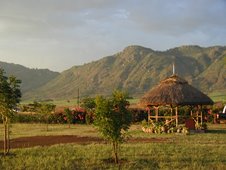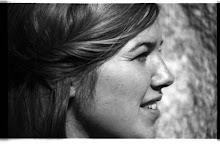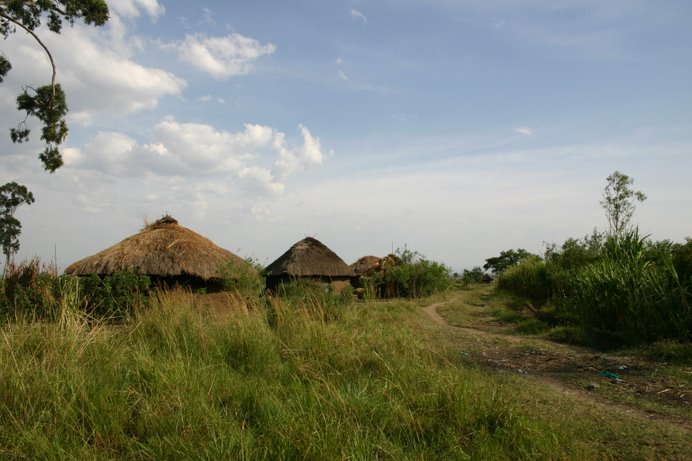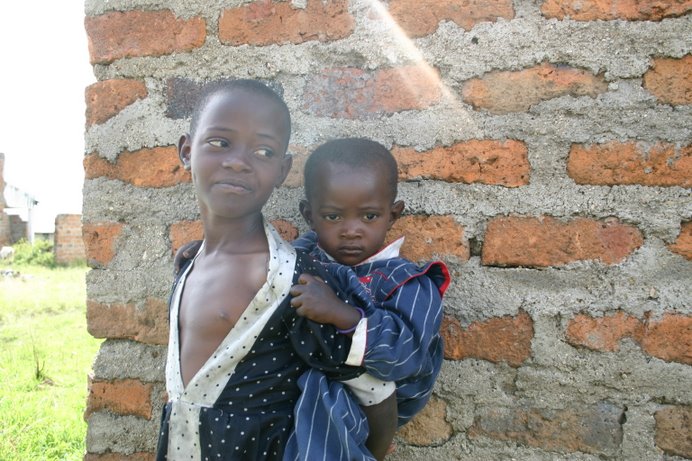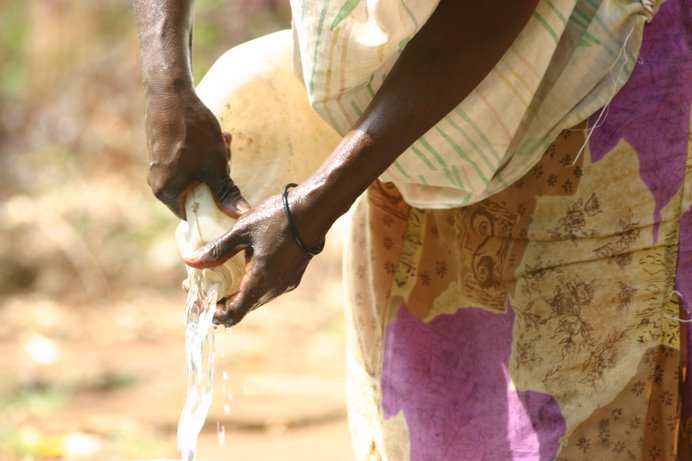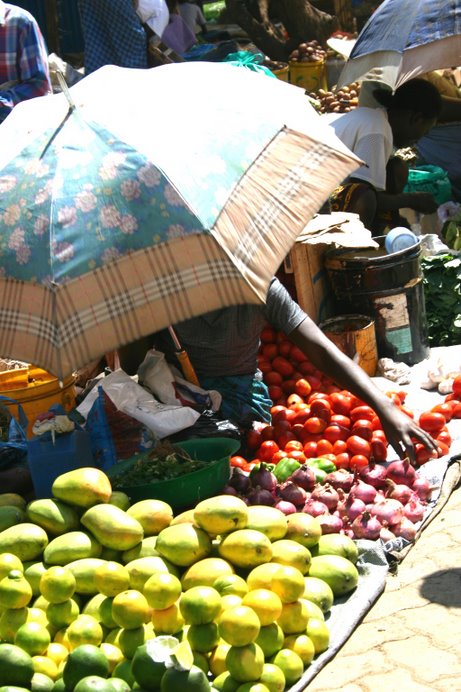The Ostrich in the Vineyard and other sights and incidents in South Africa
February 6, 2010: on the plane from Atlanta to Joburg
We were so fortunate to make the flight from Seattle to Atlanta and now, because we flew standby, they put Eric and I in business class to Johannesburg! 15 hours of giddy luxury are in progress; menus, wine, ice cream sundaes, noise cancelling head phones and hot face towels are only half of the pleasures. I keep thinking, “This is the last time I’ll get to__________.” What contrasting modes of transportation I will have. Who knows what the busses and trains will be like! I am blessed with versatility to move easily between the grandeur and rugged; the ability to delight in good gifts of all sorts and enjoy each for its own without diminishing the beauty of each with feelings of longing or guilt.
February 7, 2010: Eric’s friend Lisa from L’Abri
Lisa picked us up from the airport in a small grass green car—very chic—which she warned Eric not to make fun of her for. She couldn’t stop smiling. I like Lisa a lot. She is lively and interesting, and very fond of Eric. Her mother lives in a beautiful white house with a pool and many rooms with flowers and libraries and paintings. She is Dutch and I am I am enjoying hearing her story. Eric and I had a nice time not sleeping because of jet lag. We read, talked, laughed, wondered whether it would ever be light, had morning prayer together and listened to more morning birds than I have ever heard.
February 8, 2010: The train to Capetown
“It’s friendly, it’s safe, it’s Shosholoza Meyi”---the train billboard
Flocks of little delicate butterflies frolic white in the grass, faster than the train, but directionless.
Man running down the platform in short rugby shorts which Lisa tells me is declaratively Afrikaan.
I wake up from a nap to the smell of hot, grey, rain. My calves are crusted with a pillowcase of dirt from the open window and little tuffs of white dandelion seeds swirl inside the carriage.
The stars covered the entire sky over the Free State with no other lights interfering
In the morning I watched the sunrise over the desertous stubble of the Karou. The night transformed the endless lush of yesterday’s view.
We went through damp, stony smelling tunnels lasting 5-10 minutes each. When we emerged from under the mountains we came out into vineyards surrounded by cliffed mountains. There are Ostriches in the Vineyards!
February 9, 2010: Capetown and hectic slang
Tidbits from the thatched bathroom of the Rhodes Memorial: small graffiti for huge historic tension.
“Cecil Rhodes needs to come off his throne. We will not celebrate empire anymore!”
In reply was scrawled:
“The Empire strikes back! If it weren’t for Cecil Rhodes you would still be living in a hut the size of this toilet.”
Cecil Rhodes was the British man who owned most of the gold mines and developed a lot of South Africa. “He was a bit of a racist asshole in my opinion”—Lisa
S.A. slang lesson
Hectic: Epic, crazy, wow, cool, rad, uh huh, hmmmm (can be used by University students anytime, any situation)
Ex: “I am headed up to Kenya next week by bus and train” ---“Oh hectic!”
Vibey: Containing good vibes.
Ex: “It’s just such a vibey place---you’ll love it!”
Digs: Any sort of house (not flat) that college students live in.
Ex: “We love our digs. It is the best place we’ve ever lived in together.”
Digsmate: Roomate
Ex: “Anna, let me introduce you to my digsmate, Nox.”
Capetown
We had such a holiday in Capetown. I went swimming at a different beach almost everyday. (You can even swim in the Atlantic Ocean and Indian Ocean on the same day!) We hiked to the top of Lion’s head and overlooked the Cape. We also went salsa dancing and hung out at several fabulous coffee shops. I am leaning towards putting Capetown down as the most beautiful city I have ever seen, however, I am taken aback by the huge poverty gap and cultural exclusiveness between the white South Africans and the black South Africans. A lot has changed since 1994 (which I think has been quite hard for the whites) but it still seems that everyone is racist. Everyone lives in fear of theft, robbery and who knows what (possibly for valid reasons) but it is no way to live life in my opinion. We drive by the townships and nobody even talks about it. There is still so much I don’t understand about this place and I was just plopped here almost by accident. Being white in South Africa means something totally different than being Mzungu in other parts of Africa.
The Hectic (in all its South African slang and literal meanings) Journey North
February 13, 2010: Johannesburg Park Station Greyhound to Bulawayo, Zimbabwe
The bus took off at 8:30 pm. Joke (yokay), Lisa’s mom sent me off and I shuffled through luggage lines and passport checks in the dimly lit parking lot. I was seated next to Inkosi, which means King, who is a 29 year old Zimbabwean man who works with orphans. We were fast friends before the bus left the station. He was the answer to our prayers for this leg of the journey. He guided me throughout this part of the journey and took care of me well. When we got to the Zimbabwean boarder about 3 am, there were already hundreds of trucks and busses in line, piled three times as high as the roof with food supplies, diapers, sacks of maize, huge striped plastic bags with zippers, building materials, yellow jerry cans---for the last few years, everyone comes over to S.A. for certain supplies that are not being produced in Zimbabwe right now. We had to take all of the afore mentioned items out of the bottom of our bus and open them all up for hours of inspections.
I don’t think Inkosi had much faith in my ability to make it around on my own, which challenged my pride and my independence, but was, I am sure, much needed and helpful. When we arrived in Bulawayo, he walked me to the train station across town, where I was able to book a ticket and store my bag. Then he took me to his church—a huge mega church with ten services at least 500 people each. I was the only mzungu and it was totally natural (for everyone else, not for me, I was soaking it all in, noticing every minute detail). The worship leader held a pink silk hankie to wipe the sweat off the microphone and his forehead. The girl in charge of leading the intercessory prayer time knew her scripture like no other. The songs were in several languages, Zulu, Debele, English…I don’t even know…but I like it when everyone dance walks with the little shake and sway and up go the hands in a little clap. When anyone is in agreement with the preacher they raise their hand—it’s quite funny to see hands shooting up like watered flowers here and there throughout the brown headed soil.
I had been praying for astounding hospitality from those whom I would meet along the way, and I received it. After church, I went on a matatu to Inkosi’s mother’s house outside of town. We spent the day visiting his neighbors and walking around the area spying on beautiful sounding church choirs and running into old friends.
In the evening we headed back to town where I boarded the 8:00 train for Victoria Falls.
February 14, 2010 Train from Bulawayo to Vic Falls
Everything was dark, the sky, the platform, the inside of the wood paneled Bitish compartments, everything. I found my compartment 1068 B and slipped inside with two women already relaxing and chattering away, clinking their spoons on the tin enameled bowls as they ate. This lazy clinking and chattering was a familiar, comforting sound and I soon sat down and introduced myself. “Oh, Anna, the mother of Mary…and I am Miriam, sister of Moses, and this is Martha, sister to Lazerus’ in the Bible.” Said the elder of the two sisters. Martha exhaled a sigh of pleasure and said, “Oh, I like our Bible names!” in her high, nasally way.
These two Catholic gems were traveling to Namibia to sell clothes. (They spend half of each month at home sewing, and the other half in Namibia selling.) I couldn’t make out their faces in our small, dark compartment, but I sat next to their big, friendly, Zimbabwean bodies and all doubts of strangers and thievery left me. In fact, Inkosi had just warned me about women thieves, don’t even trust women, he said. And soon they were in turn telling me, “Just trust women, I can’t believe you are doing this Anne, it is so far, but please, you just ask women and they won’t cheat you.”
Another woman joined us, Mrs. Zulu, a 65 year old Zambian women in a semi-ragged skirt and head scarf with a quiet, wise demeanor. After feeding me supper (which was the first meal I had all day) they embarked on some sort of “Can you imagine! Oh wow, mmmm...”.sort of womanly conversation in Dbele which I don’t understand, but I had fun guessing what it was about based off the responses and intonations of the listeners with their sighed-out “ehhh’s” and inhaled, up stroked “hey’s” and tut tuts with the toungue and head shakes. A few English words stood out: Dutch Reform, Maria, The Blesseds, Catholic…..I asked her what they were talking about. Miriam explained they were discussing her oldest daughter who has come back from school and refuses to go to the same church. “ She is disrespecting me and shaming me for respecting Jesus’ mother, Mere and I ask her what she’s learning in that church of hers and she can’t even tell me… Yes, Anna, we are discussing the problem of youth these days.”
When we settled to sleep I asked them to sing. Martha lead with her high, youthful voice, Mama Zulu occasionally drawled out a base line and Miriam and I joined somewhere in between them. It wasn’t very harmonious or beautiful, but it was the exhale of all the weariness or troubles of a day and an inhale of “Thank you Jesus, Hosanna, Aleluia Amen” which can’t but help to oxegenate peace inside you. When we were finished Martha said as natural as anything to a cabin of strangers “Let us pray, everyone pray for yourself.” Everyone started a monotone run-on of fervent prayer in different keys while my prayers were slow and had more difficulty coming out. The last few days have been prayers uttered constantly inside a quiet cocoon; theirs were colorful, beating butterfly wings. I love sleeping on trains.
Feb. 15 (my half birthday) Bus to Lusaka, Zambia
As soon as we stepped off the train in Victoria Falls, the baboons began running throughout the cars, in and out of the windows, up on the roof—everywhere. Victoria Falls seems beautiful but I didn’t spend much time there. Hopefully I will get to spend more time there later. I walked across the bridge and saw the Zambezi River winding through the canyon and the falls spilling over out of the grey sky. Then I headed straight for immigration with Mrs. Zulu. I ended up changing plans to travel with Mrs. Zulu to Lusaka by bus instead of catching a train to Kapiri Mposhi. I decided that I would travel as far as I could with people I knew (sort of). This way, I could be sure to catch the long train out of Kapiri Mposhi the next day and not wait several days for the next train. When our bus seemed like it was entering Lusaka, I became curious about where I would go. It was dark and I didn’t have any plan. I hadn’t planned on coming to Lusaka at all so I knew little about it. Mrs. Zulu thought I could spend the night in the bus since I had to catch another early bus the next morning. I have been learning not to fear, because God hasn’t given us a spirit of fear, but of sonship, by where we can cry “Abba Father.” However, I’ll always remember the intensity of arriving in big cities (Lusaka is only one of them) in the dark of night with nowhere to go—the bus would pull into some station swollen with people yelling outside, waiting to swallow you up in their taxis. Others lay around the dirty cement with bright, worn fabrics crunched all over their waists.
Once outside, I evaded all the taxi men and was fluttered about by Mrs. Zulu’s relatives who rushed me off with their nephew (who was also a taxi driver) to a Backpackers. I was very thankful. I met some interesting people on my dormitory porch. “Hi, my name is Doh, like doh, ray, me, fa, so…” said the sausage eating, whisky drinking, smiley Korean. He was impressed with the only Korean phrase I know, which, apparently is only used by the grandmother generation, meaning, “Oo la la,” or ‘Oh God!” Another guy from Demark, Anders, sat fiddling with a computer. “He has come to be Che Gavara” said the Korean, lifting his glass in a toast aimed his direction. He is interning with a radio station to give people a voice and an opportunity to hear all sorts of news. The other guy, a German, has been cycling from Germany since last May and is on his way to Capetown!
February 16, 2010 Kapiri Mposhi and the train to Dar es Salaam
Kapiri Mposhi loomed like another big city in my mind; I was wrong. I was the only person to get off when the bus pulled to the side of road amidst a one street town bustling in a classically African street market sort of way. I had passed hundreds of these little towns in the past few days. They usually only last about 42 seconds outside the bus window. I was so delighted by the prospect of spending the day in a low key wandering way in a place akin to the area I stay in Kenya. The train station was a bit hard to find because it was about 5k out through sandy trails lined with green stalks taller than I am. I dragged my little carry on suitcase and made slow snake tracks behind me.
Much to my surprise, the station was huge and slowly by slowly filled with people and wares waiting for the train. I was wearing a Chitenge around my dress like every other Zambian woman-- so many people made comments to themselves or to me-- “I just saw you wearing this and I thought I wanted to talk to you…” ….. “ I just saw you and you are O.K.” …… “What I was saying earlier to that lady, was that you are a real Zambian lady. It is very good you are just putting on like us.” I think that kept me out of trouble and in a false way said I knew what I was doing. (Of course I didn’t know a thing.)
February 17, 2010 Two days of solitude on a train
They put me in a compartment all by myself, (after moving me around three times) which I had prayed for. Even though I love being with people, I really wanted to be alone for awhile. I am relaxing and reading and praying and painting, but my attention is only long for looking out the window. I can stick my head out the window for hours without tiring and I enjoy just staring more than anything else. I see lush green hillsides of Maize and trees and sometimes red mud and thatch houses. At present, thunder sounds from the yellow-grey sky and the green land stands out—brightened more by grey storm than by blue sky bright. This place has maximum fertility. We stop at all sorts of cute little stations and some bigger ones. Occasionally women and men will run to the tracks to sell doughnuts which are displayed in dark brown circles on round trays balanced on top of the women’s heads. Men sell boxes of water and peanuts. Children throw their hands forward to beg or just to talk. When we crossed the border to Tanzania the next morning, I could speak to them in Kiswahili which they thought was funny. The manager of the train keeps coming to check on me and other train workers or passengers I’ve met stop in sometimes. There are a few other Mzungus. A Swiss couple and an American guy are all in my car. I feel a bit blank. Not dim or sad, not excited or scared, but being alone and aloud, I am nothing in particular—like sleep, I can just be. At times, when the compartment door is closed, I don’t even have to react to anyone or anything.
It is a funny thing…once you cross the border on the train, you cannot use Kwacha anymore. You have to start using Tanzanian shillings, even to get water on board. I am weary of holding 5 currencies in my head at once and trying to get them is another story.
The immigration team came on in their blue uniforms and informed me that the transit visa was more than I expected and they didn’t like the slight rip in my 5 dollar bills and would not accept them. I told them I didn’t have any others to give them so he took me to see his boss. He was definitely the head hancho—a huge man sitting in the “office” compartment of the train surrounded by other uniformed officials along with Zambian passports and bills spilling over the little table. “See look—that American paid.” Finally they stamped my passport with a note informing the next border to make me pay on exit. When I exited Tanzania the visa was even less expensive.
Two Tanzanian women named Hilda and Grace were added to my compartment on the second night. At first they were shy but they enjoyed my Swahili attempts and soon we were able to talk and be comfortable. Grace and I stayed up long into the night exchanging songs and singing the ones I knew. I wasn’t very good at singing the new ones on my first try and she laughed at me a lot.
February 18, 2010 Getting mixed up with the police in the Dar station
I hustled my bag in front of me and tried to squeeze my way through the aisles to the coaches on the platform. Michael, a 19 year old Adventist student missionary from Oregon, was leaving his sight in Zambia to meet some others in Nairobi. We decided to figure out the busses together and had arranged to find our way to Ubungo Station together. When we were on the platform a taxi man began harassing us with prices but my friend Drasilla was willing to take us there by public. The taxi man was insistent on getting our business and began to fight Drasilla, bringing the police woman into it in a Swahili shout match saying she could not be trusted with Mzungus. I trusted her much more than this man, but in the end, the policewomen made us go with him and I was able to cut his outrageous price by 3/5.
I felt more helpless this day than any other. I had to use an ATM to get Tanzanian shillings, but my card wouldn’t work at any ATM. We stopped at little gas stations in the dirt and large corporate banks inside hotels—nothing worked and I couldn’t get a hold of my bank. I had to save my U.S dollars for the next two visas, otherwise I would have exchanged them. Luckily, I was with Michael who was able to pay for everything until I could make the phone call to the bank, which in itself, proved difficult. If I were not with Michael, I would have been really stuck, not even able to make a phone call. When I finally paid a guy to buy a SIM and let me use his phone, it was in the midst of a power outage and the discovery of all of Michael’s money stolen while we were gone at the beach. I had to stay on the line with the bank lady! Even though all of this craziness was going on around me in the dark, I had to try to answer her questions about my recent activities in order for my ATM to work. They hadn’t set it right when I called them from the States and they needed my driver’s license etc… “On which day last month did you_______...” In the end, it worked out well. Since he had paid my bus fare, less of his money was gone and now I could get some shillings to pay him back.
February 19, 2010 The Spider Bus to Nairobi
5:30 am Ubungo Station
There are 100s of busses of all sorts crowded together in the crowded dark of early morning. Our tickets were given to another bus line because ours broke and we would never have found out, but a man breathlessly reached us through the crowd and directed us to the Spider bus, which was a dodgy red piece headed to Nairobi. The bus stayed in a jam for 2 hours before making it out. “Do you know what jamming is? Yes, we are very much in a jam” said the ticket man. The bus continued to fill with people even last minute deals were cut and people threw their stuff under as we were moving slowly through the jam. The bus had a dirty cream-fringed curtain in front. If you’ve ever been on a bus with a fringed curtain, you know what sort of bus this is. It is called the Spider and has a huge spider covering the windshield and little spider stickers plastered inside and out.
A light rain fell and was absorbed into the thick, sweaty air. I felt uncontrollable tiredness and heavy eyed submission to sleep. While I lay out the window in a conscious slumber, I could hear a man rebuking and admonishing various persons on the bus up and down the aisle. He was a bold voiced Swahili preacher only tonally amusing my half-observing self. I could hear people outside the bus saying, “Ongalea, Mzungu na lala” Look, look at that white girl sleeping! I slept to avoid impatience. When I could manage my eyelids I saw a girl in the bus jam next to us casually drop a lock of extension hair out the window into a puddle. Now a background of African music mixes lightly with the rattling window, which the man in front can’t stand—he keeps trying to adjust it and shove papers inside to brace it. The keyboard and drums and chorus of voices roll on and on as the bus starts and stops and makes its way 20 hrs North passed Kilimanjaro and the Pace mountains and a place that looks like a western movie desert.
The evening traded places with the day and didn’t care who we were—all of us silent passengers crossing the border---all subject to pre and post border hours of flying off our seats through the acacia bush on dirt roads. Lightning flashed the silhouetted trees through the cold, dust-caked glass and the jovial keyboard and chorus played on. At one point I thought we were trying to evade the border. It turned out to be my imagination enjoying the suspense and drama of this excellent ride. We soon reached Namanga, the border, which I have crossed before. It was now at least midnight and I assumed we would reach Nairobi by 8:00 pm. The whole bus had to wait for me while I convinced and prayed for the officer to accept my older version of a $20 bill. “Eh! What is this? We only accept the 2000 series.” The bill was a brand new bill that I took off of an origami dollar shirt my grandparents had given to me when I graduated from highschool almost seven years ago. They decided to take it anyways.
A few hours later we arrived in Nairobi where I was to get a ride with Michael’s friend to a place I was going to stay before heading out to Kisumu in the morning. In the end, we couldn’t find it and I stayed with these Adventist missionaries at the uncle’s house. It was a very interesting time hearing and observing the perspective of this family who has lived all over Africa for the past 20 years. The uncle owns a luxury resort in the Masai Mara (which I am invited to visit anytime). The nephew, Jared, lives out in the Mara building an orphanage. He took us out rock crawling in his 4-wheel drive truck up on top of the Ngong hills. If you have ever read or seen the movie “Out of Africa” you know the Ngong hills. The town is named Karen, after Karen Blixen and I even saw her house. At this point I had been traveling for at least a week both night and day and I was glad to run around and be tossed about by forceful, refreshing winds. It doesn’t feel like it, but Nairobi is around 6,000 ft. in elevation and I was looking over the whole of it on top of the hills.
The next morning I took the Easy Coach to Kisumu. It was the easiest bus ride I have ever taken. I used to look forward to this ride from Nairobi to Kisumu as a long entrance and reintroduction to Africa; This time I had to be convinced by my seat mate to get off the bus in Kisumu because I didn’t recognize the new station and I thought we couldn’t possibly be there so soon! John and Jean were there to welcome me and take me back to the farm. I was so happy to be there and felt overwhelmed with the familiarity in contrast to so many days of stimulation and uncertainty.
I made this pilgrimage because I love Africa and I wanted to see God’s faithfulness. Not as a test for God to show himself necessarily, but as a practice for me to trust God with my life—with something that took faith and was so much bigger than myself. Underneath it all, I could not control everything or possibly succeed on my own. I am praying that this journey will be an alter or an Ebenezer in my life reminding me of when God has been so faithful, so that when I pass through the waters, I will know my anchor will hold, and that Christ has delivered me and will continue. Thank you for praying for me. I was reminded of your prayers in every conversation and when I met each person we prayed would be there to help me. Na tosha—Nitakwambia kuhusu maisha yangu na Nehemia baadaye. (This is enough for now….I’ll tell you about life at Nehemiah later!)
Saturday, February 27, 2010
Thursday, February 4, 2010
En Route
Tomorrow my younger brother Eric and I head to the Sea-Tac airport at dawn to catch a standby plane to Atlanta and then on to Johannesburg. Lisa, Eric's friend from L'Abri, will pick us up and we will train to Capetown the next day to spend time with her family. On Saturday the 13th, I leave them to begin the journey North to Kenya. Take a look at the map below to trace the overland route of trains and busses. I start with a Greyhound to Bulawayo, Zimbabwe, then take the Bulawayo--Victoria Falls train. The next morning the train will stop before the falls where we will all get out and walk over the bridge into Livingstone, Zambia. The next leg is a train from Livingstone to Kapiri Mposhi. The longest train leaves Kapiri Mposhi and arrives in Dar Es Salaam 45-72 hrs after leaving :) After Dar, I will Akamba and Easy Coach all the way home to Kisumu and on to Nehemiah.
www.seat61.com/zambia.htm
www.seat61.com/Map-southernafrica.htm
www.nehemiahinternational.org
www.seat61.com/zambia.htm
www.seat61.com/Map-southernafrica.htm
www.nehemiahinternational.org
Subscribe to:
Posts (Atom)

